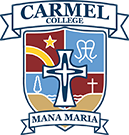What do teachers do on a Teacher Only Day?
Go to school to familiarise themselves with the changes to NCEA!
NCEA – National Certificate of Educational Achievement is New Zealand’s main secondary school qualification. It was introduced nearly 20 years ago to replace School Certificate, University Entrance, Sixth Form Certificate and University Bursary qualifications.
Since its introduction, the qualification has evolved to reflect the changing world young people are living in. The key changes included introduction Merit, or Excellence endorsements for separate courses, and at a Certificate level. In May 2019, the Government announced a package of a further seven changes to strengthen NCEA and help maintain the trust and confidence in New Zealand qualifications. The changes also contribute to the Government’s vision for an education system that gives all learners a solid foundation to be successful in life and in a global economy. These changes are to take effect in 2023.
They key changes to NCEA involve:
- Making NCEA more accessible by;
- ending NCEA fees, including for NZ Scholarship.
- designing achievement standards and associated resources that are accessible and inclusive so that everyone has an equal opportunity to achieve.
- making, where possible, some existing Special Assessment Conditions (SACs) such as large-text papers available for anyone.
- simplifying the application and evaluation process for SAC.
- Integrating te ao Māori and mātauranga Māori into NCEA by;
- including te ao Māori and mātauranga Māori into the outcome statements as part of the new ‘graduate profile’ for NCEA and in the design of achievement standards.
- ensuring equal support for ākonga Māori in all settings and equal status for mātauranga Māori.
- developing more standards to make sure that mātauranga Māori is acknowledged and credentialed equally by NCEA, (e.g. Māori Performing Arts).
- developing new assessment resources and teaching and learning guides for mātauranga Māori.
- ensuring that, where possible and appropriate, te ao Māori and mātauranga Māori are built into achievement standards for use across English and Māori-medium settings.
- building teacher capability around culturally inclusive NCEA and assessment and aromatawai practice that is respectful to mātauranga Māori.
- Strengthening literacy and numeracy by;
- developing standards for literacy and numeracy which make up a coherent package of 20 credits
- making the new literacy and numeracy requirement a co-requisite of NCEA
- The credits will not contribute to the 60 credit requirement for each level of NCEA
- Students will be able to meet the standard whenever they are ready.
- managing teacher workload and consistency by marking the standards externally.
- Having fewer, larger standards – therefore less assessments – by;
- Designing each course to have fewer standards covering a broader range of knowledge, skills and capabilities. Each standard would be worth 4-6 credits, with a maximum of around 20 credits per subject.
- Simplifying NCEA structure by;
- making each Level of NCEA a 60 credit qualification.
- introducing clear guidance on the number of credits that a student should enter each year; 120 credits at levels 1 and 2, and 100 credits at level 3.
- limiting resubmissions so that they can only take a student from ‘Not Achieved’ to ‘Achieved’.
- balancing the number of internally and externally assessed standards
- clarifying what is meant by an External assessment ie this could mean things like portfolios, reports, investigations, performances or common assessment tasks.
- Reflecting, where possible, different sources of knowledge including mātauranga Māori, vocational and Pacific peoples knowledge in achievement standards, unit standards and associated materials.
- expanding course endorsements to include Achieved as well as Merit and Excellence grades.
- Showing clearer pathways to further education and employment by;
- creating a ‘graduate profile’ for each level of NCEA. This is a description of what a student awarded the qualification must be able to do and know. Graduate profiles will also include the valuing of te ao Māori and Mātauranga Māori.
- refining the Record of Achievement (RoA) to be clearer and more comprehensive in showing what each student knows and can do. It will include what they have achieved through NCEA, including Certificate endorsements, Course endorsements at Achieve, Merit and Excellence and a series of brief course descriptions.
Eight Teacher-Only-Days were allocated to update staff on these changes. Initially these were planned for 2020 and 2021. However, due to the disruptions of 2020, most of these days have been rescheduled to 2021 (3 days) and 2022 (4 days). Our focus last week was to become more familiar with te ao Māori, mātauranga Māori and the new Literacy and Numeracy Standards. The next TOD in August will have a different focus.
These changes to NCEA are just one of seven areas undergoing change in NZ Education – really reinforcing the comment by the Greek philosopher Heraclitus of Ephesus. 535 – c. 478 BC, who is quoted as saying – “The Only Constant in Life Is Change.”

